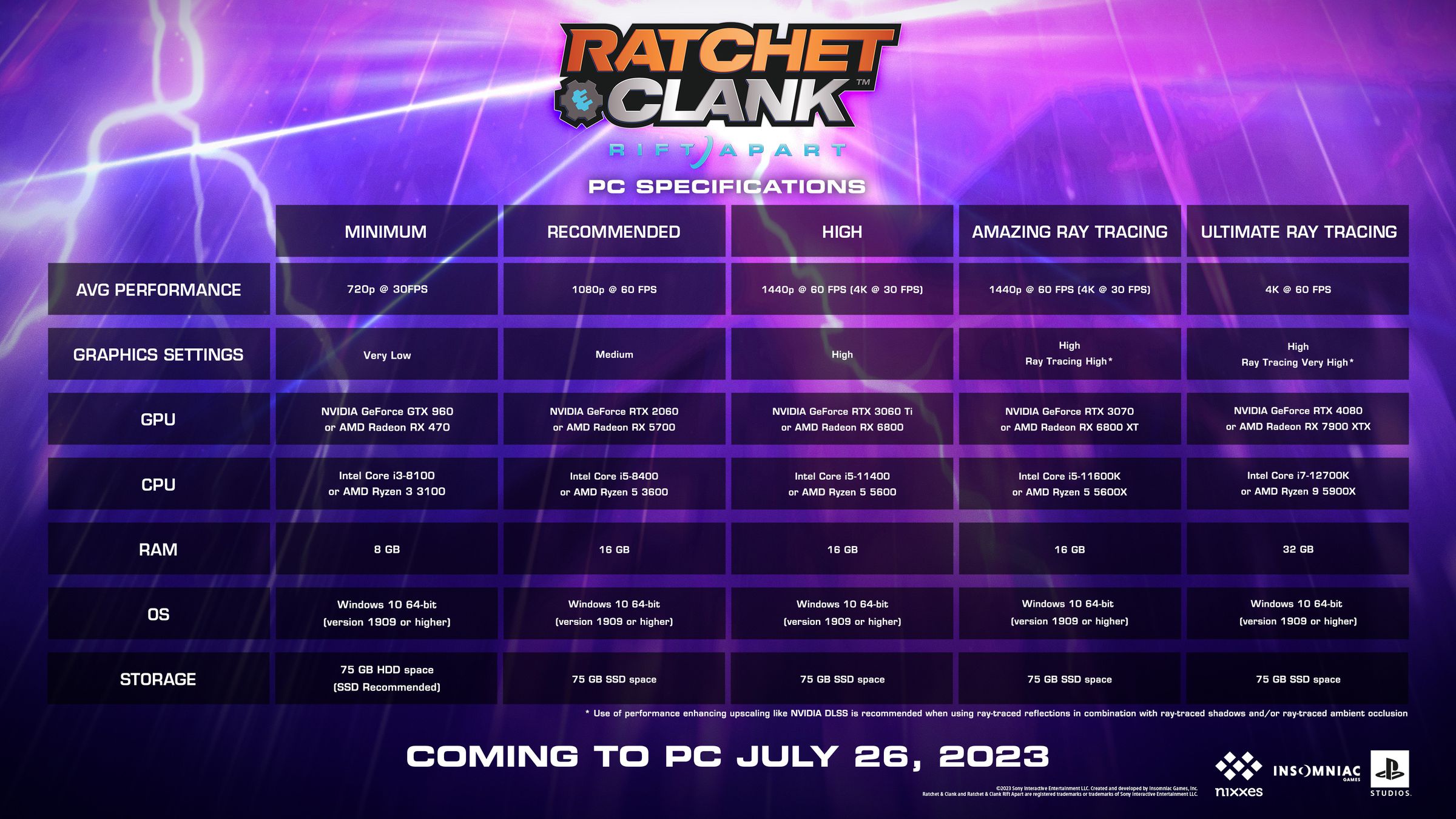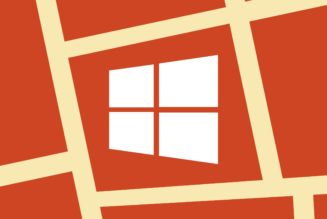Ratchet and Clank’s PC system requirements recommend a solid-state drive but don’t require it — thanks to DirectStorage 1.2!
Share this story
See our ethics statement.
Ratchet and Clank: Rift Apart was the poster child for the PlayStation 5’s blazing fast solid-state drive — but on PC, it doesn’t technically need one at all.
In a now-vanished blog post on Steam, Sony, Insomniac, and lauded port developer Nixxes have revealed the game’s PC system requirements, which show you can get away with the standard spinning magnetic platters of a traditional hard drive if you’re satisfied with minimum spec (720p at 30fps).


Before you hold this up as the latest proof that the PS5’s SSD was unnecessary, you should also know there’s another technological innovation at work here: Microsoft’s DirectStorage, whose recent version 1.2 added the ability to buffer data from slow hard drives before passing it along to your GPU to rapidly decompress game assets.
In the blog post, Nixxes’ port of Rift Apart claimed to be the very first game to implement DirectStorage 1.2, and principal programmer Alex Bartholomeus specifically suggested it’s the reason you can use a traditional hard drive.
For Ratchet & Clank: Rift Apart on PC we added adaptive streaming based on live measurement of the available hardware bandwidth. This allows us to tailor the texture streaming strategy for the best possible texture streaming on any configuration. With DirectStorage, the use of a fast NVMe SSD and GPU decompression, this results in very responsive texture streaming even at the highest settings.
DirectStorage is developed to fully utilize the speed of fast PCIe NVMe SSDs, but the technology is also compatible with SATA SSDs and even traditional hard disk drives. This means Ratchet & Clank: Rift Apart on PC can use the same technology for loading data, regardless of the storage device in your system.
In June 2020, Insomniac creative director Marcus Smith originally claimed Rift Apart “would not have been possible without the solid-state drive of the PlayStation 5,” adding:
The SSD is screamingly fast. It allows us to build worlds and project players from one place to another in near instantaneous speeds. It is an unbelievable game-changer in terms of we can now do gameplay where you’re in one world and the next moment you’re in another. We’re loading up levels and that happens so quickly and in the action that you don’t even imagine that this is something we couldn’t do before, because it feels so natural. Long gone are loading screens. Now it’s all about bringing exciting new adventures.
We’ve known for a while that was a bit of an exaggeration — in September 2021, I found that the PS5 ran the game well on the slowest compatible SSD I could buy.
But in that same story, I showed that the PS5’s load times are no joke when developers optimize for SSD, regardless of which SSD you use. I repeatedly loaded an entire level in Final Fantasy VII Remake in just 10 seconds, instead of the 43 seconds it took on a PS4.
Besides, it can take years for developers to take full advantage of a console’s hardware. By 2013, Naughty Dog was doing unbelievable things with the 2006-era PlayStation 3, to the point the game looks far better there today than it does on the PS4-level hardware inside a Steam Deck.
Sony didn’t immediately respond to a request for comment on the removed blog post.









